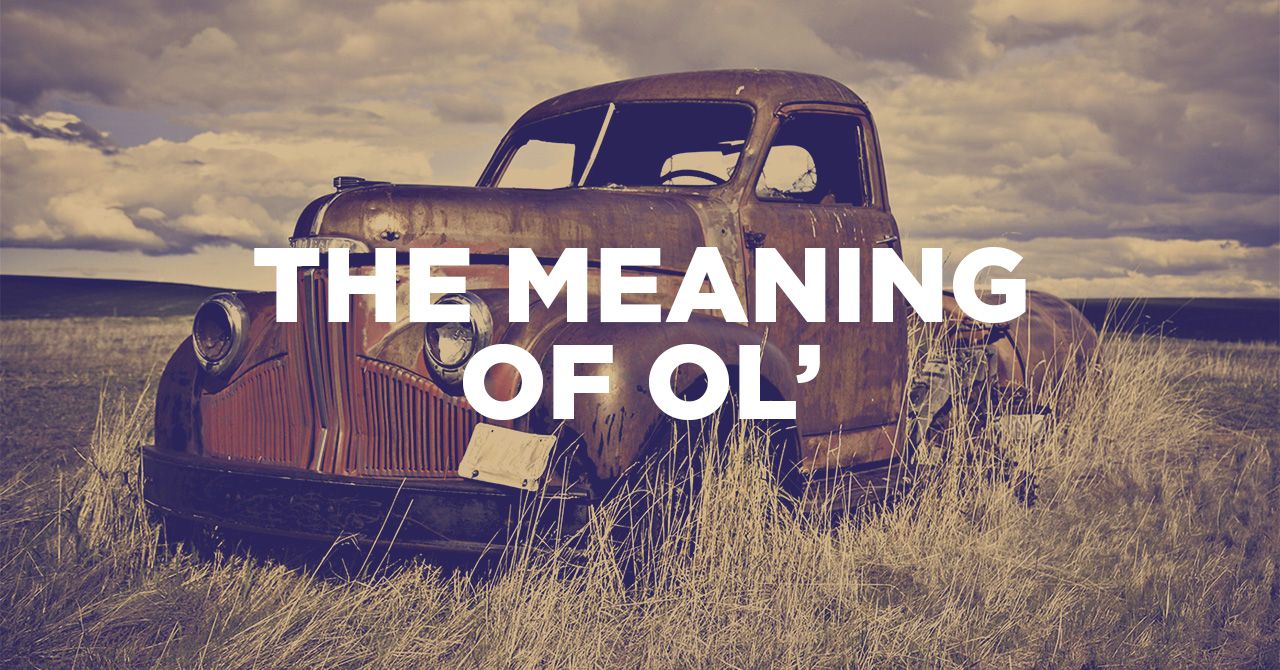
The Meaning of Old and Ol’
The word old — or its cousin, the phonetically colloquial ol’ — has long been a staple of American English in particular. So where does it come from, and in what contexts is it used?

Get a FREE guide!
Want to sound like a native English speaker?
Get our free PDF with top tips that work.

Check your email!
Even after you’ve mastered the basics of more traditional, widely spoken English, the range of regional and dialect-based sayings can present its own challenges. The word old — or its cousin, the phonetically colloquial ol’ — has long been a staple of American English in particular.
In fact, these variations prove difficult enough for writers in English to get the hang of, and much fewer people are learning the language for the first time.
So where does it come from, and in what contexts is it used?
Respect...and disrespect
Beyond the definition that merely suggests age, old (and all its variants) has developed a connotation of reverence and affection across the English-speaking world. This began in the mid-19th century in keeping with a growing nostalgia for the past. (Think of the geyser at Yellowstone National Park dubbed “Old Faithful.”)
“Good old boy,” for example, was developed in England to refer to men who were linked by a specific class standing or school or club membership. The phrase was passed on to the United States, especially the South, to refer either (positively) to a man of proper breeding or (negatively) to a bigoted, intolerant man.
In keeping with Southern speech patterns, ol’ soon sprang up to indicate a drawl, dropping the final consonant as speakers did with many words. Another potential spelling of this variant is ole.
Casual endearment
These days, people tend to use variations of the word casually or when they want to refer endearingly to something. There are virtually no limits to the context.
Here are a few examples:
Let me just fire up the ol’ printer and we can get these flyers done.
Don’t forget to call your ol’ mom every once in a while!
Oh, that old thing? I haven’t driven it in years, but I’m keeping it around for parts.
















